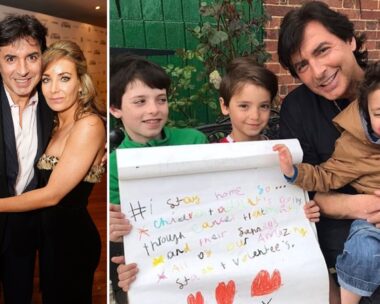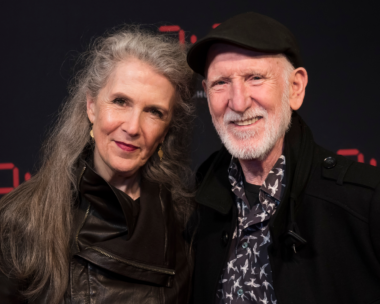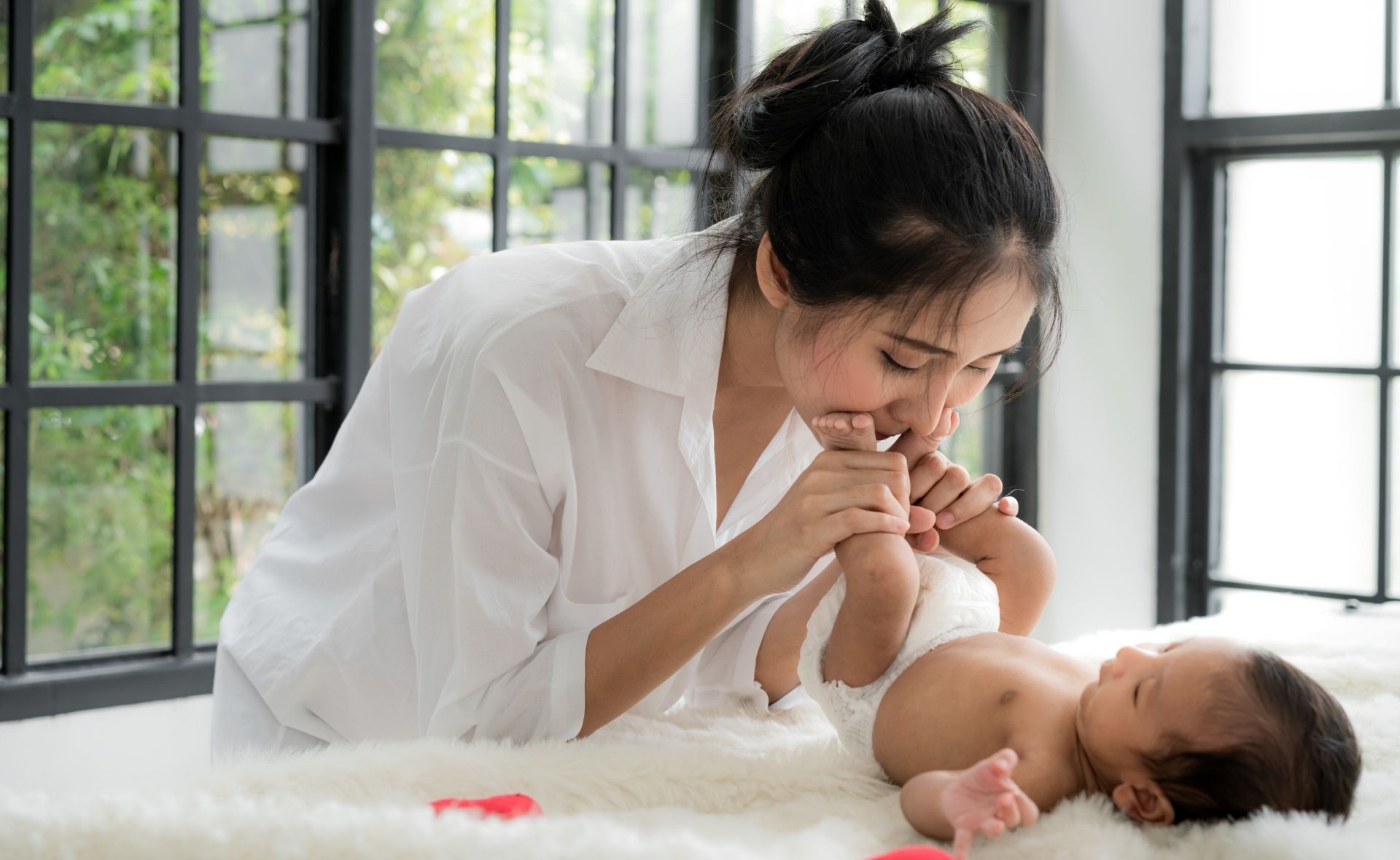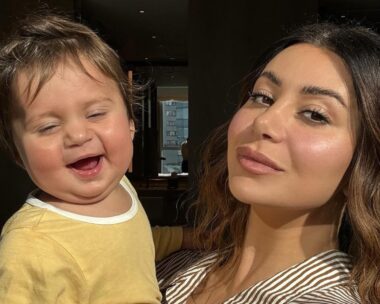Many babies will laugh out loud for the first time at around three to four months old but some bubs won’t let out a chuckle until a little later.
Dr Caspar Addyman is head of the Baby Laughter Project and collects laughter reports from parents all over the world. “The first smiles are occurring around one to three months, and the first actual laugh occurs on average around three and a half months,” says Dr. Addyman.
What brings on bub’s first laugh? “It’s about people,” Dr Addyman explains. “First and foremost, it’s a social thing. Almost certainly, it will be in the presence of mummy or daddy.”
How to make your baby laugh
Play peekaboo
Hide your face behind your hands and then pop out with a surprised expression.
Blow raspberries
Covering your baby in raspberries is a proven winner – parents swear by it – when it comes to getting a giggle.
Funny faces
Sit face-to-face with your little one and pull off as many crazy expressions as you can to try and earn a laugh.
Invite other kids to play
Babies love children so have an older sibling or a friend’s little one, come and entertain your baby. The laughs are sure to follow.
By tickling
Who can resist giggling when they are being covered in tickles? If bub is too young to appreciate the tickle monster, try the tickles again when they are a little older.
READ: When is the right time to stop breastfeeding?

Not all babies laugh at the same things, so try playing games and pulling faces to find out what makes your child giggle. Image: Getty Images
No laughing matter
The first laugh is a development milestone as your little one learns about sound and practices her vocalisation – how to move her mouth and tongue to produce different sound effects. If your three-month-old is making happy sounds like, cooing and gurgling but not necessarily laughing, there’s no need to worry.
Evaluating bub’s development is only natural, and you’ll probably find you can’t help compare your baby’s progress against her peers. It’s important to know that children develop at their own pace. You may decide to visit a health professional, if you’re concerned your baby:
• doesn’t seem to see things or isn’t interested in what’s going on around her
• can’t hold her head up by three to four months
• squints a lot after three months
• persistently and excessively cries after three to four months
• doesn’t babble by six months
• doesn’t reach out and grab things by eight months
• doesn’t sit well by 10 months
• doesn’t want to bear her own weight by 12 months



